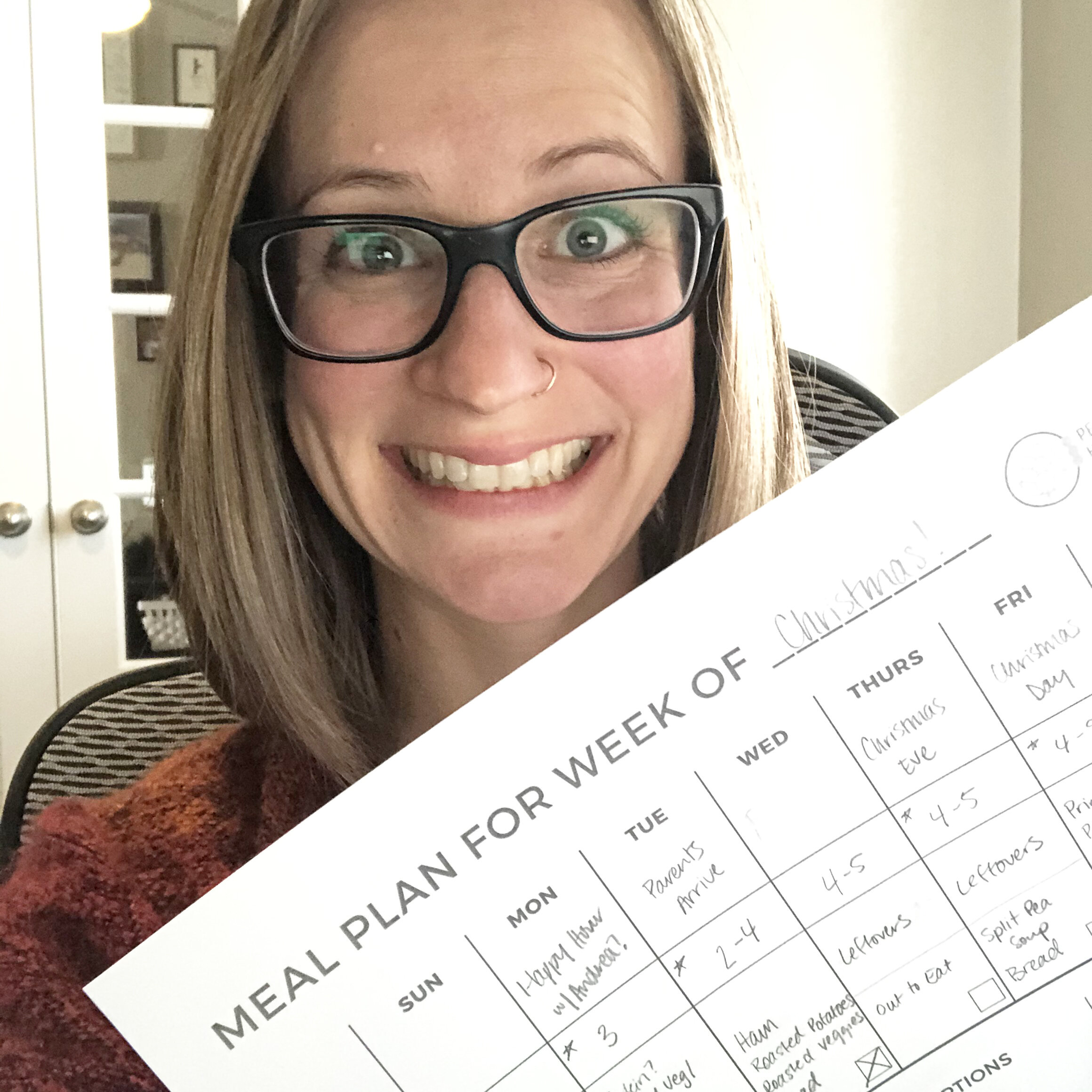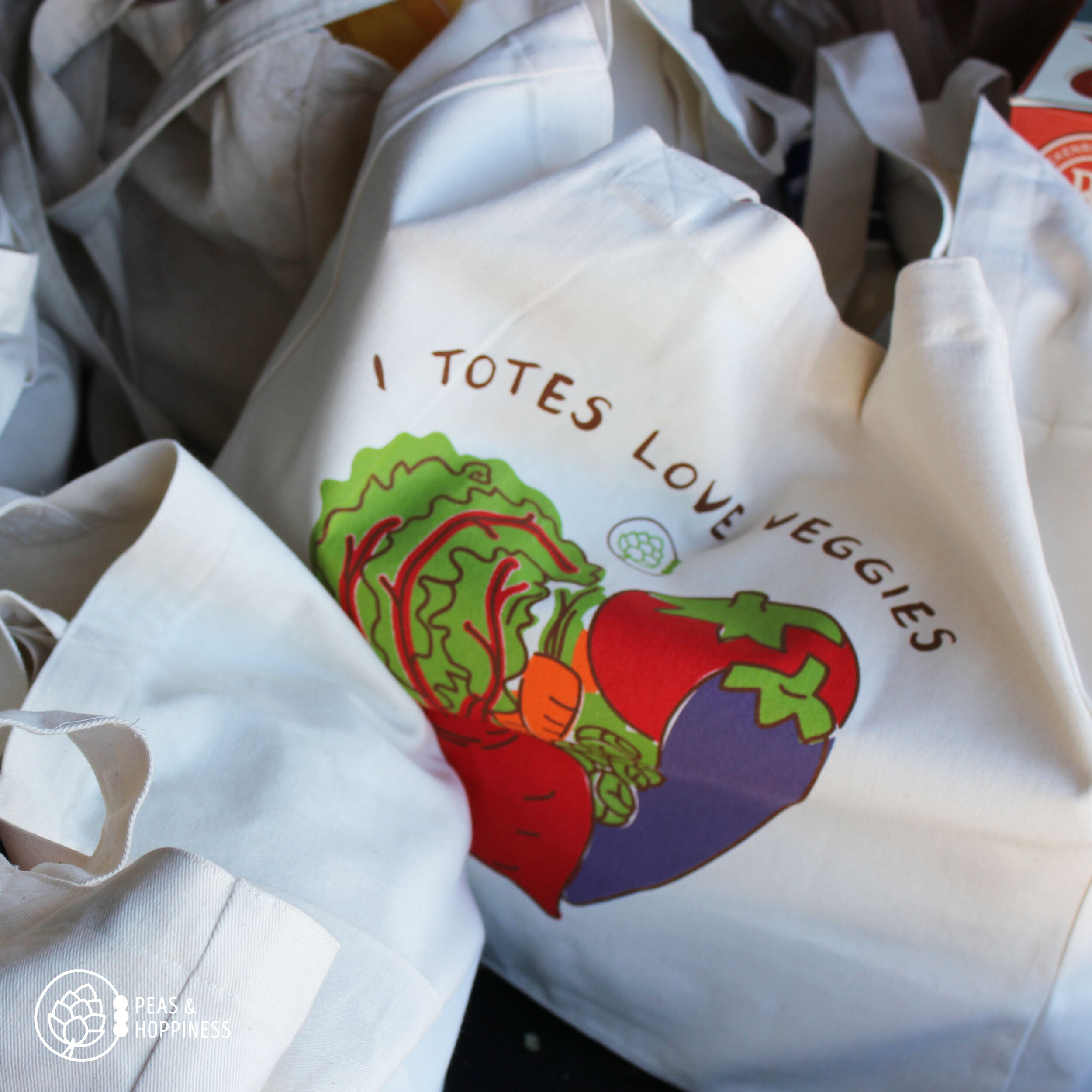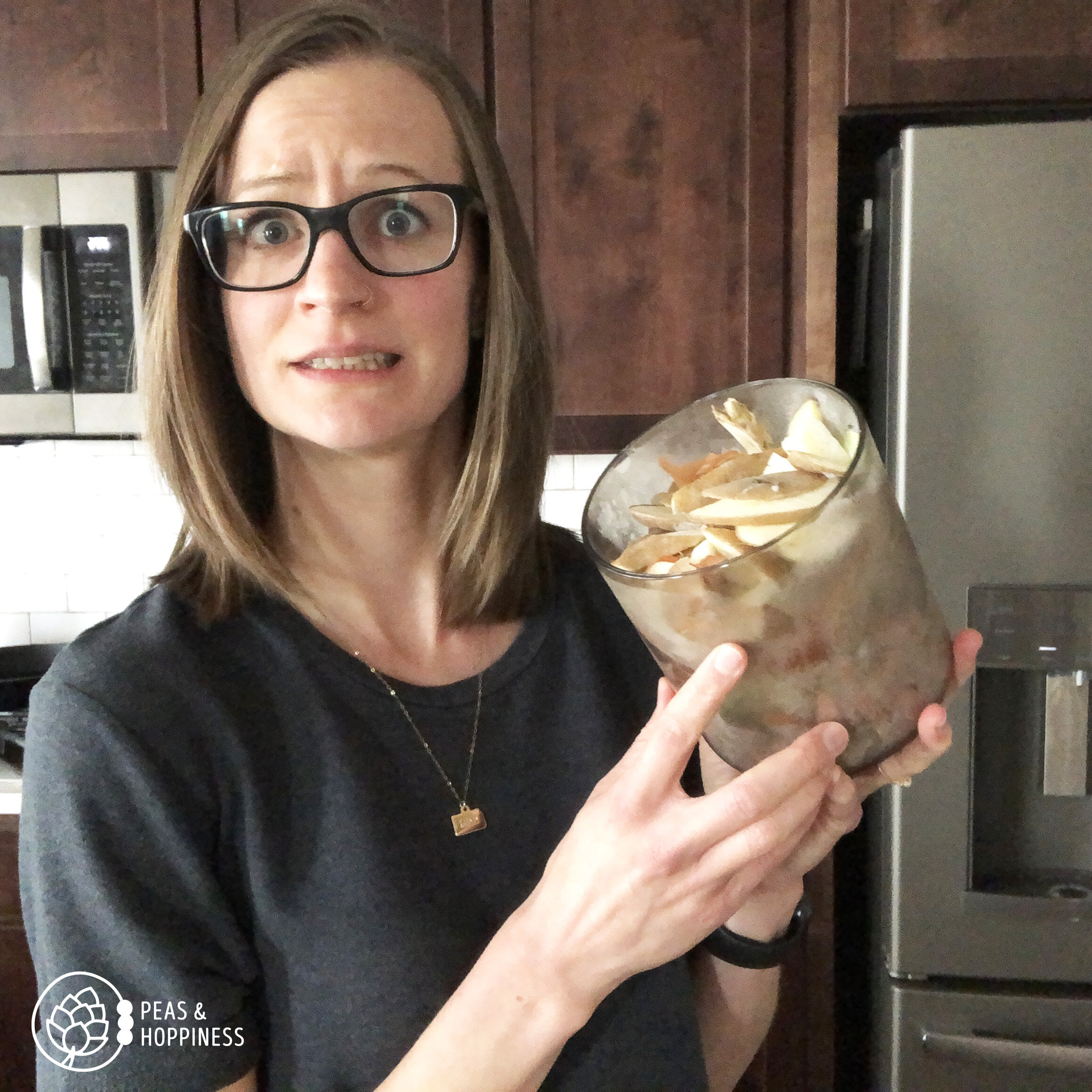
Grab my free Meal Planning Template to help you plan this week
In addition to improving your eating habits, an effective meal plan can also decrease your food budget and prevent veggies from spoiling in the fridge.
Did you know an estimated 30-40% of the food supply in the US is lost to food waste? (source)
Yikes.
Of that, a substantial portion of waste happens right in our own kitchens when we discard spoiled food. The silver lining to this shocking information is this means you can make a significant impact for the world AND your own food budget if you can decrease waste in your home.
The best way to prevent food waste is to create a meal plan for your family.
If you take a few minutes every week to do this, you’ll not only save time and stress (imagine no longer panicking when someone in your family asks you, “What’s for dinner?”) but you’ll also be helping the planet by reducing your family’s carbon footprint.
Where do you start? Here are three ways meal planning can help you reduce your family’s food waste:
#1: Buy Only What you Need
How do you avoid the trap of, “Well I might need that so I’d better grab it” at the grocery store?
You take a list.
How do you know what’s on your grocery list? You make a plan.

Don’t forget your reusable tote bag when you go to the store!
If you’re making a meal plan on the fly while you’re walking down the aisles of the grocery store, it’s hard to have a good idea of how much food you really need to buy.
-
How many times this week are you planning to cook?
-
Do you already have a can of tomatoes at home or should you buy an extra?
-
What plans do you have this week that might prevent you from cooking as often as usual?
These are just some of the examples of important things to consider before going to the grocery store. Once perusing the aisles you just have too many other things to think about to effectively bring home what you need and leave behind what you don’t.
Pro Tip: going to the store with a grocery list can save you hundreds of dollars in groceries over the course of the year – not to mention the time you save from avoiding wandering down unneeded grocery store aisles. Saving 15 minutes at the grocery store every week is reason enough alone to create a plan before going!
#2: Use Alllll Your Leftovers
We’ve all been there: holding the reusable container at arm’s length, nervous to open the lid to see if last week’s casserole has turned into a science experiment.
Managing leftovers can be challenging: you need enough so you don’t have to cook every night, but not so many they go unused and end up spoiling.
As part of your meal plan, think through which recipes make enough for leftovers and incorporate these into your weekly schedule. This will prevent those scary-smelling experiments from becoming a weekly occurrence.
Pro Tip: when putting away dinner, package leftovers into individual containers so they’re ready to grab and go the next day without taking more time to repackage.

Save scraps from vegetables and freeze…

Then use to make simple & flavorful Vegetable Broth
#3: Plan Around Perishable Vegetables
The only thing I hate more than the scary leftovers-turned-science-experiments are finding my vegetables wilted and soggy in the back of the fridge.
Some vegetables have a longer shelf life; others tend to ripen (and then spoil) within a few days of picking them up at the store or farmer’s market.
As you create your meal plan, use recipes which include these more perishable ingredients (tomatoes, salad greens, and avocados) sooner in the week than vegetables with a longer shelf-life (carrots, potatoes, or winter squash).
Why? Well, life happens.
Even the most planned, well-intentioned home chef will find themselves needing to move around the meal plans during the week. If you’ve planned the perishable meals sooner in the week, you can easily move these back a few days before the vegetables spoil.
Recipes with shelf-stable ingredients can often wait until the next week if something came up and you don’t end up using all your planned recipes.
Pro Tip: What do you do with the inevitable vegetables that do somehow end up spoiling? Use these to make vegetable stock or add to your compost to avoid throwing them away altogether.
Set aside 30 minutes per week for Meal Planning to Save Hours (and Dollars and Stress) all Week Long
If you want to eat better for your family and help reduce your family’s carbon footprint (and budget) by avoiding food waste, download this free Meal Planning Template to get started.
This template shows you how to take into account your family’s schedule, how often you need to cook, and how many leftovers you have so you can successfully create a plan that works for your family.
Happy money-saving & food-waste-preventing!
Ann from Peas and Hoppiness
This article was featured on Twinkl as part of their Sustainability Week campaign.
2 thoughts on “Save Money and Prevent Food Waste with these 3 Meal Planning Tips”
Thank you for this handy advice post. I advise making lists of what you need and what you already own etc as well. Another thing to do is to look at some tried and tested ways in order to easily find cheaper items in the big supermarket on the shelves. Try it and see what happens as a result.
Take a helpful but short colour coded list to remind you clearly and avoid doing food shopping when peckish. Go at quieter times of the week instead to really analyse current food prices and therefore save a ton of money. Good luck.
Plan all of your meals carefully. You can find so many own brand goods at really low prices so do purchase them. Look out for supermarket offers and discounts. I only now get six bottles of discounted white wine from a local supermarket nowadays.
I prefer to buy my bread, cheese, fresh fruit, vegetables, chutney, milk and eggs at mini farm shops or at a weekly farm market. Same applies to other types of dairy products and fresh cuts of very cheap meat like ham plus tins of fish. Plus there is a lot of fun to be had exploring farm shops and farm markets.
I love these tips!! Great advice. And love what you said about shopping at farmer’s markets – buying produce in season is good in so many ways, including the cost. Thanks for sharing!